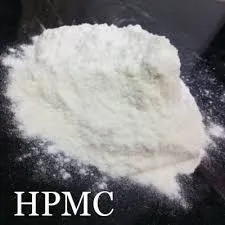
ஆக . 21, 2024 05:57 Back to list
Manufacturing Process for Redispersible Polymer Powder and Its Applications in Construction
The Manufacturing Process of Redispersible Polymer Powder
Redispersible polymer powder (RDP) plays a crucial role in various industries, particularly in construction, coatings, and adhesives. This dry powder is created from emulsions of polymers through a careful manufacturing process that allows it to be re-dispersed in water, imparting beneficial properties to the final formulations. In this article, we will delve into the manufacturing process of RDP, highlighting the key steps involved and the technology behind it.
Step 1 Selection of Raw Materials
The manufacturing process begins with the selection of appropriate raw materials. Commonly used polymers include vinyl acetate, ethylene, and acrylate copolymers. The choice of polymer depends on the desired properties of the final product, such as adhesion, flexibility, and water resistance. Additionally, additives like surfactants and stabilizers are also selected to enhance the performance of the emulsion and ensure stability during processing.
Step 2 Emulsion Polymerization
Once the raw materials are selected, the next step is emulsion polymerization. In this process, the selected monomers are dispersed in water with the help of surfactants. The mixture is then subjected to heat and initiators, which catalyze the polymerization reaction. As the reaction progresses, polymer chains begin to form, resulting in a stable emulsion of fine polymer particles suspended in water. The stability of this emulsion is critical, as it ensures that the powder can be redispersed effectively later on.
Step 3 Drying
redispersible polymer powder manufacturing process

After the emulsion is formed, it must be converted into a powder. This is typically achieved through drying techniques, with spray drying being one of the most common methods. In spray drying, the emulsion is atomized into fine droplets and passed through a hot air chamber. As the droplets travel through the chamber, the water evaporates rapidly, leaving behind a fine powder of polymer particles. Alternatively, other drying methods such as freeze-drying or drum drying can also be applied, depending on the specific requirements of the product.
Step 4 Milling and Sieving
Once the RDP is dried, it often undergoes milling to achieve the desired particle size distribution. This step is critical because the particle size can significantly affect the re-dispersibility and performance of the final product. Following milling, the powder is then sieved to remove any oversized particles and ensure uniformity. This ensures that the RDP can be easily re-dispersed in water during application, forming a stable and homogenous mixture.
Step 5 Quality Control
Quality control is an integral part of the RDP manufacturing process. Samples from each batch are tested for various parameters, including particle size distribution, moisture content, and performance characteristics such as adhesion and flexibility. These tests ensure that the final product meets industry standards and customer specifications. Quality assurance processes guarantee that manufacturers can deliver consistent and high-quality RDP to their clients.
Conclusion
The manufacturing process of redispersible polymer powder involves a series of meticulously controlled steps, from the selection of raw materials to final quality control measures. The innovation in polymer chemistry and processing technology has allowed manufacturers to produce RDP with enhanced properties that meet the diverse needs of industries worldwide. As applications for RDP continue to expand, ongoing research and development will further improve the efficiency and performance of this essential material, ensuring its role in modern formulations is sustained.
-
Unlocking the Benefits of HPMC Products: A Gateway to Versatile Applications
NewsAug.07,2025
-
Unleashing the Potential of HPMC Ashland: A Comprehensive Look
NewsAug.07,2025
-
Tile Bonding Cellulose: The Key to Superior Adhesion and Durability
NewsAug.07,2025
-
Hydroxypropyl Methylcellulose Powder: The Versatile Component in Modern Pharmaceuticals
NewsAug.07,2025
-
Hydroxyethyl Cellulose: The Versatile Solution for Various Industries
NewsAug.07,2025
-
Hydroxyethyl Cellulose (HEC): The Versatile Polymer for Various Applications
NewsAug.07,2025







